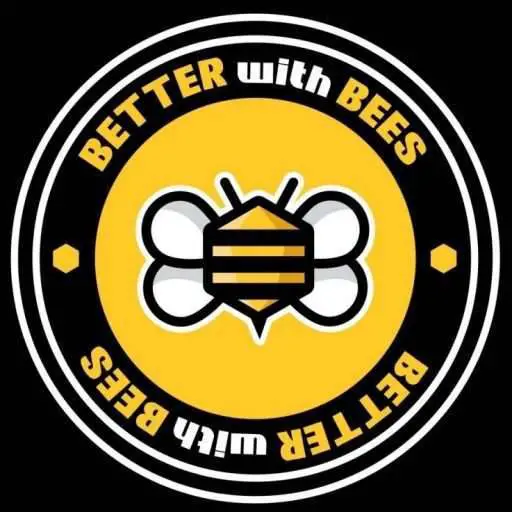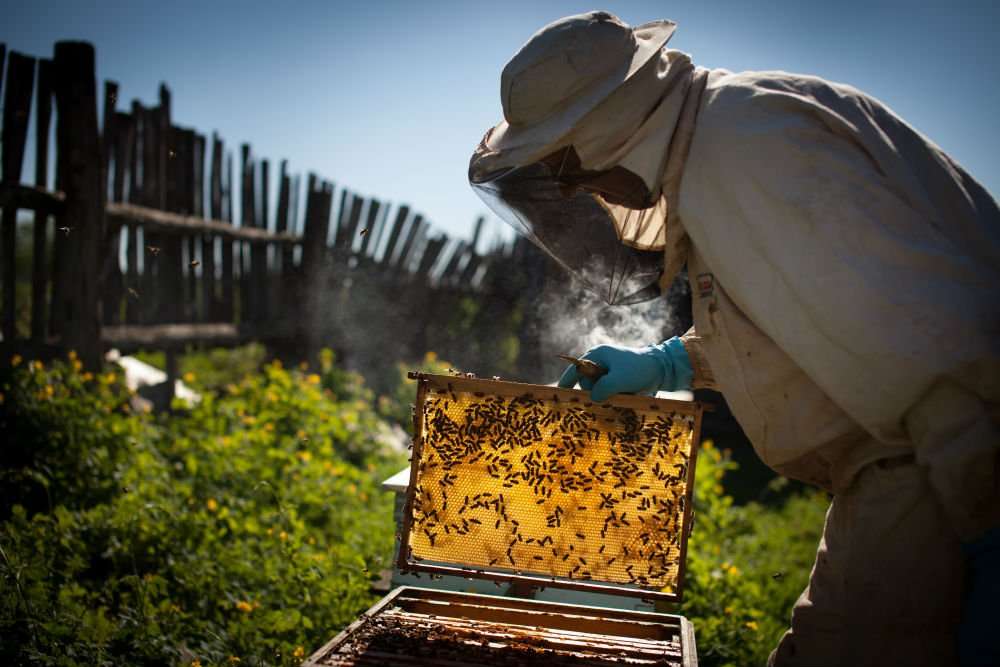Are you interested in beekeeping?
Whether it is for monetary gain, to save the planet, or just as a hobby, beekeeping can be quite rewarding no doubt. How to raise bees in your backyard is what we’re here to talk.
Be Familiar With Regulations
First and foremost, before you can even think about beekeeping in your backyard, you need to look up the local rules and regulations on the topic. Suffice to say, beekeeping in backyards is not legally permitted in some places.
You probably won’t face any issues in rural areas, but keeping a swarm of bees in the middle of an urban area is most likely against municipal regulations.
Some countries have no laws surrounding this at all, while others have very strict rules. You don’t want to end up facing legal penalties because you didn’t familiarize yourself with the rules.
To find out more about the rules in certain areas, check out Discover Beekeeping, a total guide on the subject.



Join The Beekeeping Community
Something else that you definitely want to do before you buy your bees is to join a local beekeeping association, club, or community. This is not something you want to do without any knowledge or help from people who are seasoned beekeepers.
Joining a club usually does not cost much, or sometimes is completely free. Administrators will hand out newsletters, informational materials, and at the very least, there will always be someone for you to turn to if help is required.
Choose Your Bees
The next step to beekeeping in your backyard is to choose the right kind of bees to keep. You probably want to go with honeybees, assuming that honey is one of your main goals.
However, with that said, there are actually quite a few different honeybee species out there. Trust us when we say that they do not all have the same temperaments.
Needless to say, you need to do some research and select fairly gentle and friendly bees, ones that are docile. One good choice to go with is the Buckfast bee.
They don’t have the highest rate of honey production, but they are a good option for beginners as they are fairly non-aggressive, plus they’re decent pollinators too.
A Fence is a Must
Before you set up your beehive, you need to build a good fence, one that is made of wood. This is not to keep the bees on your property; that is not what the fence is for.
The fence needs to be at least 8 feet high. This way, when bees leave and enter your property, they will do so at a height that is away from humans.
Unless you have 8 foot tall neighbors, the bees will have to fly over people’s heads to get to and from the hive. In other words, this will help minimize the chances of your bees stinging anybody.
Start Out Small
A mistake that some new beekeepers make is to go heavy right from the beginning. If you don’t have experience raising bees, and your knowledge is limited, getting more than 2 or 3 swarms or hives is not a good idea. You need to get the hang of things first before you can expand the operation.
If you are having problems, chances are it will affect all of your bees, so better that only 2 swarms take the brunt of the issue rather than 10. You can order bees online if you wish, but we would recommend buying them in person so you can see firsthand how they are being kept.
For some more advice on this topic, check out Discover Beekeeping.



Talk To Your Neighbors
If you do have neighbors close by, or if you live in an area that has a fairly dense population, you will want to consult your neighbors. People are not often happy when they hear that someone in the neighborhood has just installed a beekeeping operation.
People tend to be pretty hesitant of this, especially when it comes to children. However, the reality is that being stung by bees from a bee farm are fairly rare, especially if people steer clear of the immediate vicinity.
Offer your neighbors some free honey. That will probably help too.
Get Some Secondhand Bee Hives
Yes, if you want, you can go for the biggest and best state-of-the-art beehives that the market has to offer. However, if you are beginner, it’s probably a waste of money.
Many people start keeping bees, but give up after only a couple of years, so you don’t want to end up spending thousands of dollars on awesome beehives, only to discontinue the operation shortly after. Looking for some good quality and well-preserved used beehives is a good way to go.
Get Protection
Before you start handling the bees, especially if you have no experience, you absolutely want to get the appropriate safety gear. This means getting a full bee suit, a bee veil, gloves, boots, and a smoker. If you’re undecided on which bee suit to choose, we have a fantastic article to help you decide which best bee suit is best for you.
The chances of your honeybees stinging you are not huge, but then again, every beekeeper will get stung on occasion; it’s just part of the territory. At any rate, get some good safety gear and don’t just let it sit in your closet – actually wear it!
Regular Hive Checks
Another mistake that some novice beekeepers make is to just let the bees sit there and never check up on them. Yes, the bees will for the most part look after themselves, and it really does not take much work to keep them alive.
However you do want to check on them regularly to see that they are OK and that everything is moving forward. If there is a problem, the earlier you spot it, the higher the chances that you can correct it.
Go Get Started!
At the end of the day, all the info you need for raising bees in your backyard can be found in the Discover Beekeeping
set of books. It truly is a fun and rewarding hobby, something we would recommend trying if you have a bit of extra time, space, and money to spare.




